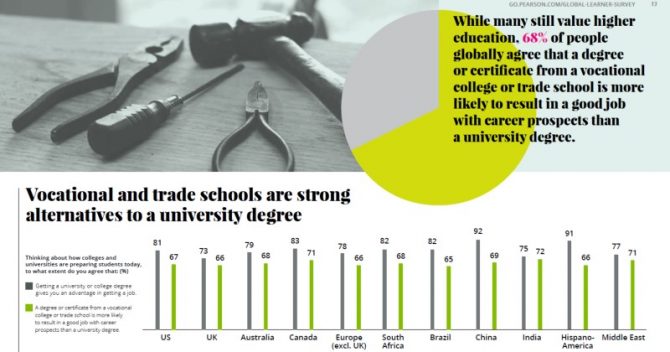Apprentices at an employer provider are expected to be on unpaid leave for two months during a business shutdown while still on their training programme, Ofsted has found.
Outdoor learning business Kingswood Learning and Leisure Group will likely be suspended from new starts after the early monitoring visit found it had made ‘insufficient progress’ in all areas of its provision to 100 apprentices on framework and standard apprenticeships in activity leadership level 2 and outdoor activity instructor level 3.
The core business of the employer, which has nine centres across the UK and one in France, is to provide outdoor learning experiences to school children.
While apprentices are sent home for two months during quiet periods, Ofsted found they do not get enough sufficient time to continue training when the business is busy, so most fall behind.
Leaders and managers were criticised by the education watchdog for not having up-to-date information on apprentices’ progress and assessors do not consider a learner’s prior knowledge.
Nor are training plans personalised for the learner, and as a result “many apprentices do not see why the training is relevant to them, and their subsequent progress is slow,” inspectors wrote.
Apprentices and their centre managers do not get detailed knowledge about the requirements of end-point assessment, so learners do not know how to achieve high grades.
Also holding learners back is a lack of high-quality English and maths support, meaning too few apprentices develop those skills to a sufficient standard for passing external tests.
The report reads: “Assessors do not always highlight to apprentices the areas of their skills that need further development.
“In the few instances where they do, apprentices do not re-submit their improved work.
“A significant number of apprentices are currently not on track to finish their apprenticeship.”
Kingswood, the website for which shows it provides activities like archery and zipwire for schoolchildren, was also found lacking in safeguarding: apprentices at some centre do not feel safe as leaders and managers do not identify and coordinate their safeguarding adequately.
For example, when apprentices return to work from injuries, they are not sufficiently risk assessed to determine whether they are fit to carry out certain activities.
Ofsted did find some positives at the provider: Kingswood apprentices do “benefit from good quality on-the-job learning from centre managers” and they develop knowledge and skills that enable them to facilitate a wide range of activities, like abseiling and team sports, safely and independently.
A spokesperson for Kingswood said: “We are clearly disappointed by Ofsted’s findings, we have been actively working on the issues highlighted.”
This includes investing in more people to support apprentices, ensuring the existing systems are more robust and are being properly implemented at every level, and going to the National Apprenticeship Service for guidance and support.
The spokesperson added: “Safeguarding is at the heart of what we do, whether that is supporting the young people who attend our centres or our colleagues.
“Our policy is that anyone who has been absent through injury or illness cannot return to work unless they have been confirmed as being able to work by a medical practitioner.
“Our apprenticeship programme is very much in its infancy and we believe the positive steps we have already taken will pay huge dividends in the future for the apprentices themselves, our customers and the business as a whole.”
The provider declined to comment on the rationale for not paying apprentices during the business shutdown period.


 And after education secretary Gavin Williamson
And after education secretary Gavin Williamson  The college’s statement said: “Swindon College’s network system has been subject to a targeted cyber-attack this week that has resulted in unauthorised access to personal data”.
The college’s statement said: “Swindon College’s network system has been subject to a targeted cyber-attack this week that has resulted in unauthorised access to personal data”.
